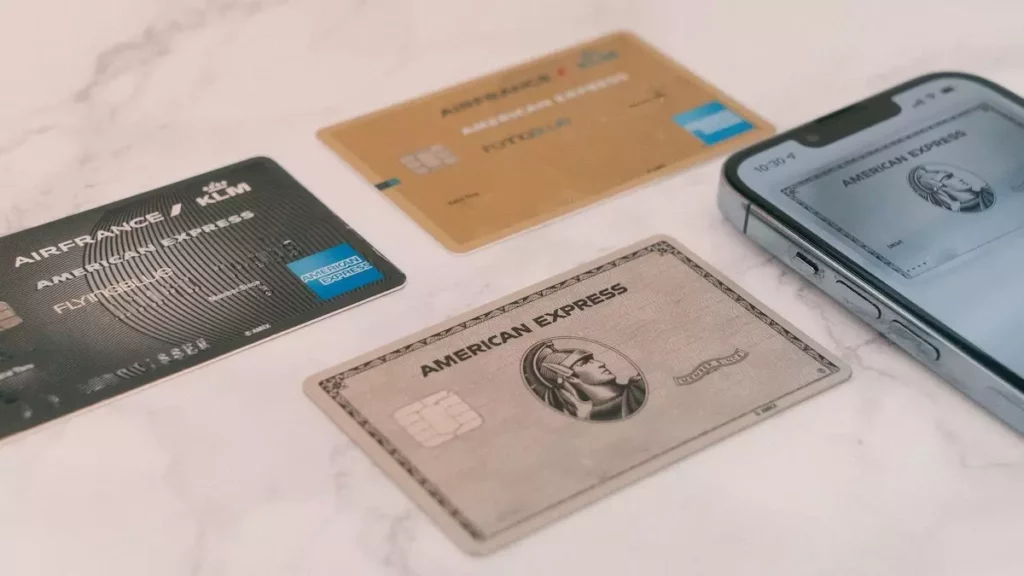The consumer culture of the present day makes it difficult for anyone to practise financial prudence. Temptations are everywhere. There is always something to buy, more stuff to accumulate. However, if you want to save and invest for a better future, you need to identify your spending triggers and overcome them.
A spending trigger is an event or situation that causes you to spend money, often mindlessly. Knowing your spending triggers is the required first step to conquering them. This article identifies six types of spending triggers:
- Stress (The Number One Spending Trigger)
- Emotional Events
- Keeping Up with Joneses
- Credit and Instalments
- Discounted Deals
- Extra Money and Windfall
1. Stress (The Number One Spending Trigger)
Stress is a major problem of modern life and everyone has different ways to alleviate stress. Some engage in healthy activities like exercise and music, others turn to bad habits like smoking. There are also those (particularly women) who shop to relieve stress. This seemingly harmless activity has become so common that we even have a term for it — retail therapy. Unfortunately, too much retail therapy derails your budget and sets you back financially. Worse still, you might spend more money than you earn and get sucked into a spiral of debts.
I was guilty of compulsive shopping due to work stress. My last job in the corporate world was not a pleasant one. I had to endure a toxic boss, nicknamed Psycho Bitch, who had a knack for making my life miserable. Her negative attitude was like a plague and everyone in my department was bitter, unproductive and unfulfilled. Most were just waiting to get their year-end bonus before tendering their resignation. During my one year there, I often went on a spending spree right after work, spending squandering a large portion of my monthly pay cheque. Although I felt horrible every time I look at my bank account, I couldn’t seem to help myself. Thus, I did what most people would do — find reasons to justify my behaviour.
‘I work so hard!’ (Erm… so do many people who save their hard-earned money.)
‘I ought to treat myself!’ (Uh-uh… you should only treat yourself OCCASIONALLY! Spending all your money on things you don’t need ain’t treating yourself. You’re just a spendthrift in denial!)
‘I only buy things I need.’ (Really? How many pairs of shoes do you ‘need’?)
‘I deserve this!’ (Maybe you deserve better! Ever heard of delayed gratification?)
‘It’s my money. I can spend it however I like.’ (It’s also your life. Your future self is cursing you right now!)
‘I shouldn’t feel guilty!’ (YOU MOST DEFINITELY SHOULD!)
I believe many of you can relate to this.
What to Do About It?
► If your job is causing you tremendous stress, you might want to seriously consider finding a new one.
► If changing your job is not possible, you need to change your habits. e.g. stop clicking the shopping apps on your phone (delete them if you can’t help yourself) or take a different route home from work (even if it’s longer) to avoid passing by your favourite store.
► You should definitely find other ways to release stress too. Pick up a hobby or learn a new skill like playing an instrument or even coding!
► It might take some time for you to stop stress shopping completely. If so, put aside a small sum of money each month (e.g. 5% of your income) for shopping. If there’s nothing to buy this month, roll the money over to the next or save it for special occasions.
► Finally, remind yourself that treats are meant to be occasional because only then will they be special.

2. Emotional Events
Unless you lead a charmed life, you are bound to experience disappointments and heartaches in your lifetime. Certain negative emotional events such as a bad breakup, an illness or the death of a loved one can shake you to the core and leave you feeling utterly deflated.
Years ago, a friend of mine went through a divorce and she was experiencing all kinds of difficult emotions from anger to guilt to profound sadness. Thank goodness the divorce settlement was fair and amicable. She got to keep her fully-paid matrimonial home and approximately S$400,000 in cash. At 34, child-free and debt-free, she was in a good place financially, but instead of preserving her wealth, she went on a year-long spending spree and depleted more than 50% of her money. Some of the expensive purchases she made include:
- A Rolex Lady-Datejust with diamonds ≈ S$50,000
- A pair of diamond earrings and a matching tennis bracelet ≈ S$12,000
- A whole new wardrobe including several designer handbags, sunglasses and shoes ≈ S$100,000
- An all-expenses-paid 12-day trip to Switzerland for herself and five family members ≈ S$45,000
- A pet dog ≈ S$3,600 (excluding the long term cost of keeping a dog)
Total ≈ S$210,600 in less than a year!
Ok, before you shake your head and start passing judgement on her, I would like you to think about a time when you were going through a rough patch, when you absolutely hit rock bottom and felt like shit down in the dumps every morning when you woke up. How did that negative emotion affect your performance at work and your personal relationships? Did it affect your appetite, lead to excessive drinking or influence your spending habits?
Everyone has different coping mechanisms for a broken heart. My friend coped with it by shopping. Considering other worse ways of coping with heartaches, shopping seemed like a terrific idea, but my friend was sinking fast in the quicksand of overspending. Thankfully, her family held an intervention and she eventually stopped her ways.
What to Do About It?
► First, you need to deal with the underlying issue that is causing you to shop like there’s no tomorrow. Focus on what is making you feel this way and then find solutions that will help you overcome it. Here are some suggestions:
- Talk to a trusted friend or family member — A listening ear goes a long way! It’s comforting to know that you can always count on your loved ones and draw strength from their encouraging words.
- Join a support group — If you feel that no one in your circle can relate to what you are going through, how about finding emotional and moral support from others going through similar experiences? By sharing your story, you are helping others while simultaneously receiving support.
- Engage in a hobby or sport — Creative or athletic outlets can be both uplifting and therapeutic. You definitely will not feel worse after that!
- Seek professional help — Navigating negative emotions can be very challenging. Sometimes, you just need a pro to help you process your emotions and behaviours.
- Cry — I know what you are thinking. It’s either ‘Haven’t I cried enough!’ or ‘Crying is a sign of weakness!’ But in times of deep sorrow or anger, crying can be a healthy coping option as it allows you to release your emotional pain (like a purging process). Personally, I find it extremely therapeutic. Yep, I’m a crybaby.
► Second, you need to constantly remind yourself that emotional shopping is not the solution to your problem. It only makes you ‘happy’ for a short period of time and you will only feel guilty for acting on impulse and making an unwise purchase soon after.
3. Keeping Up With the Joneses
They live in a three-storey penthouse with a Scandinavian kitchen to die for. He owns two luxury cars, a Porsche Carrera Cabriolet and a Mercedes-Benz E200 Saloon, and wears a Patek Philippe Nautilus. She collects designer handbags and is always stylishly dressed, even at home. Their daughter, the most well-groomed teenager you have ever met, has all the fancy gadgets. You stalk follow them on social media. O.M.G. They eat in posh restaurants, attend the most happening parties and go on the most Instagram-worthy vacations!
Meet the Joneses — the envy of many. The Joneses are everywhere in Singapore. We are the second-richest country in the world, after all (Global Finance Magazine, ‘Richest Countries in the World 2022’).

The Oxford English Dictionary defines ‘keeping up with the Joneses’ as trying to have all the possessions and social achievements that your friends and neighbours have. I define it as a disease of modern society, a disease that has become highly contagious in the era of social media.
It’s human nature to compare ourselves with others, intentionally or otherwise. Such comparisons make us evaluate our own achievements. We like knowing that we can keep up with our peers, that we have achieved similar or greater level of success. It’s also human nature to seek social acceptance. Deep down, we want our family, friends and colleagues to respect and admire us.
The desire to keep up is further propelled by social media, where it’s so easy for people to flaunt their wealth. One just needs to post photos that make his or her life seem perfect, photos that make him or her the envy of others, never mind the fact that the photos probably misrepresent his or her life completely.
Call it whatever you want — social pressure, ego or ambition. If you are spending money to impress others, you have a SERIOUS PROBLEM. In personal finance, this is one of the deadliest traps you can fall into. Whether you end up maxing out your credit cards on material items or taking out a huge mortgage that leaves you cash-poor, overspending to keep up with the Joneses will most certainly destabilise your financial health.
Call it whatever you want — social pressure, ego or ambition. If you are spending money to impress others, you have a SERIOUS PROBLEM.
What to Do About It?
► Tell yourself this: many people are living beyond their means and have more credit card debt than savings. If you could take a peek at the Joneses’ bank accounts, you might not envy them anymore.
► Of course, some people are crazy rich for real. Well, suck it up and stop comparing! Focus on yourself and your financial goals instead!
► Don’t spend so much time on social media if it makes you feel inferior or inadequate. Social media amplifies unrealistic comparisons because most people only post content that make them appear in the best possible light.
► If you must, compare yourself with the disadvantaged. There are many people leading less satisfying lives than you. That will hopefully help to put things into perceptive for you.
► I think the most effective way to stop trying to keep up with the Joneses is to set yourself a few financial goals (short term, mid term and long term). This is an important step as it forces you to think about what you want to achieve, e.g. the income level you want, your ideal retirement age and so on. If you aren’t working toward anything specific, you are likely to spend more than you should. Your goals will keep you motivated and laser-focused on your financial future. You won’t have time or interest to try to impress others!
Check out: The Joy of Simple Living: My Story
4. Credit and Instalments
I love credit cards. They are such an excellent financial instrument for saving money through cash rebates, reward points, discounts and air miles. For instance, Mr Wow and I like to go for 1-for-1 dining deals on special occasions like our wedding anniversary. I also accumulate the reward points in one of my credit cards and redeem them for retail vouchers every December for Christmas shopping. We basically make the most of our credit cards, which have saved us quite a lot of money over the years.
Regrettably, credit cards are the bane of certain people, or more specifically, undisciplined and financially irresponsible people. Since they are so convenient to use, they make it easy for one to overspend. To make matters worse, ‘Buy Now Pay Later’ (BNPL) schemes are rapidly gaining traction and consumers can buy just about anything and pay for their purchases in instalments. But this convenience comes at a cost. You end up buying more stuff and risk going deep into debt doing so.
Being caught in a debt trap creates numerous problems. It leads to stress and adversely affects your physical and mental health in consequence. It can also negatively impact your relationships such as frequent family tensions and conflicts.
True story: At the height of the Covid-19 pandemic when most people were stuck at home, a young cousin of mine did so much online shopping that she incurred almost $30,000 credit card debt even though her monthly salary was less than $3,000. Yep, that’s right. It’s an extra zero spent on useless shit! Her parents would absolutely go nuclear on her if they found out about it, so in desperation, she called yours truly (‘lucky’ me) for help.
‘What were you thinking! Are you nuts! The interest rate is 24% per annum!’ I screamed in disbelief. Knowing her, I had serious reservations about her promise to pay me back in instalments but I lent her the money anyway (after a long lecture of course). Just two weeks ago, I scolded her big time as she had apparently ‘forgotten’ to pay me back for two months. It wasn’t the first time and I told her that I won’t stand for anymore nonsense. One more time and I’m calling her mum. My cousin is the inspiration for this article. Please let her be a cautionary tale.

What to Do About It?
► Adopt the right attitude about credit cards. A credit limit is a loan extended to you, NOT free money to spend. Duh!
► You really shouldn’t be buying things you don’t have money for, so avoid BNPL. It encourages unsustainable spending and consumer debt. It might be fun to shop like a queen but you will be slaving away to pay off your debt later. DEBT IS A FORM OF MODERN-DAY SLAVERY!
► Remember: It’s easier to avoid getting into debt than to get out of debt, so live within your means and strive to lead a debt-free life.
► If you are already in a financial shit hole due to debt, you need to find the will to claw your way out, one step at a time. Change your habits and seek help, if available. Just make sure you pay the person your saviour back! You have my best wishes.
5. Discounted Deals
Everyone loves a good bargain, no matter how big or small. Not surprisingly, discounts are everywhere. Retailers and brands understand the psychology of discounts and have come up with a great variety of ‘hot deals’ and ‘special promotions’ (e.g. price/percentage off, rebates, buy one get one, free gift, free shipping, etc.) to entice suckers consumers to buy more. They are certainly not doing this out of the goodness of their hearts!

Discounts can augment your spending but if you make use of them wisely, they do help you save money. For instance, bulk discounts are very useful when it comes to things that you buy on a regular basis such as non-perishable food, toiletries and other consumables. When Mr Wow and I were still doing our business, we used about 10 printer cartridges a year. We always purchased them in bulk at the beginning of the year to get a 15% discount, which worked out to be S$450 for 10 printer cartridges. Not bad, huh?
But do be mindful of the expiry dates of food products when bulk buying. It’s not a saving if you end up throwing the item away because it has gone bad. It’s a sin to waste food like that.
It’s hard to react to discounts sensibly, especially when we are bombarded daily with glitzy advertisements promising to help us save money. Worse still, not all discounts are genuine. For example, some retailers are downright unethical with their perpetual ‘Closing Down Sale’ and ‘Fire Sale’ advertisements. It’s incomprehensible to me why some people still fall into these discount traps.
It’s hard to react to discounts sensibly, especially when we are bombarded daily with glitzy advertisements promising to help us save money.
What to Do About It?
► Keep in mind that discounts are designed to seduce you. Their primary aim is to make you spend more and save less. So take a step back and ask yourself these questions:
- Do I need this item?
- How often will I use it?
- Do I like its design, colour, material, etc.?
- Am I just attracted by its low price?
- Is it really a good deal?
- Is it right for my budget?
► If you are not sure if you should buy something even at a discounted rate, keep the cash and walk away.
Check out: Cut Your Expenses: Quit Buying These 8 Useless Things
6. Extra Money and Windfall
In the United States, nearly 80 billion lottery tickets and scratch cards are sold every year. Overnight, the winners find themselves with an astronomical fortune and at the centre of the limelight. By sheer luck, they are set for life. How awesome! Some winners were determined not to let their new-found wealth cut them off from reality, others took a vastly different approach and spent their money frivolously. Sadly, one of the winners featured ended up in ruins. Needless to say, there are many others like him.
A windfall by definition is a large amount of money that is won or received unexpectedly. Not unexpectedly though, easy comes easy goes. You only have to talk to hard-core gamblers to know. When they do win a lot of money at the casino, they always end up losing it on their way out.
Winning lottery tickets and gambling gains are extremely rare. More often than not, a windfall is the result of an inheritance, property sale, stock sale or salary bonus. The size of the windfall ranges from a few thousand dollars to tens of millions of dollars. Sure, it’s very tempting to buy a Birken bag after receiving a huge bonus at work. Those with larger windfalls might want to dash off to buy a car or even a house.
WAIT. Calm down and do yourself a favour — take your time and consider what else you could do with the money. Sitting on it for a while can help clear your head and give you the time required to make careful plans and established a sound financial footing. You have a whole life ahead of you to splurge, so what’s the rush!
Just received a windfall? Calm down and do yourself a favour — take your time and consider what you could do with the money.
What to Do About It?
► Pay off your debts, especially high-interest ones like credit card debts and student loans.
► If you don’t already have an emergency fund, set aside one at once. It should be equivalent to at least six months of your expenses. You never know when you might get laid off or incur a major expense. Your emergency fund will ensure that potentially costly events do not disrupt or ruin your financial plan.
► If you have young kids, plan ahead for their education, e.g. university tuition fees.
► Build a secure and sustainable retirement portfolio. If you are clueless about it, read up on the subject and talk to different financial professionals before making an investment. In the meantime, stash your money in a safe place like a high-yield savings account or a fixed deposit account (if you are tempted to spend it).
► Once you have developed a financial plan as solid as rock, you can take a portion of your windfall to fund an interest, treat yourself and your loved ones or donate to your favourite charity. Yes, you should have some ‘fun moolah’ in your budget. To quote Gertrude Stein, ’Whoever said money can’t buy happiness simply didn’t know where to go shopping.’
It’s not how much money you make, but how much money you spend. If you are a compulsive spender, it is a sign that you have lost control of your financial life. Overspending is wasteful and sinful. It can lead to massive amounts of debts. It is a symptom of an underlying cause that needs to be addressed and dealt with.
Never forget that prudent spending habits pave the way for financial success, so the sooner you fix your problem, the brighter your financial future will be. Of course it’s perfectly fine to splurge occasionally — as long as they are within your budget.
Budgeting is important as it helps you to control your spending and save money. Check out my two-part series: How to Cut Expenses to Retire Early: Getting Started and Realistic Budgeting.
Are your spending habits a source of conflict between you and your spouse? If so, you might want to read my article How We Resolve Our Money Differences as a Couple.
Related posts: Why You Should Track Your Expenses Down to the Penny | Cash Stuffing Budgeting System: No Thanks! | The Compulsive Consumer vs the Austere Saver | 5 Reasons for Vacation Overspending


